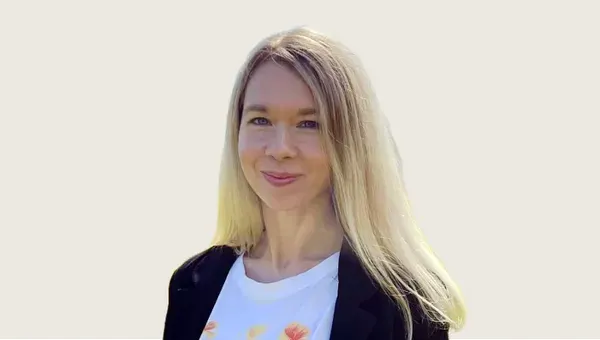Learn about the cost of social egg freezing in Switzerland and when health insurance will cover it.
Key Facts
- One cycle of egg freezing costs around CHF 5,000 to CHF 8,000, depending on the clinic.
- At Cada, you pay between CHF 5,000 and CHF 5,500, including medication.
- At Cada, storage of your eggs is free for 5 years.
- Eggs can be stored for a maximum of 10 years.
- The cost of social freezing is not covered by health insurance.
Introduction
More and more women in Switzerland are choosing fertility preservation through egg freezing. This process, known as social egg freezing (or elective egg freezing), offers a way to safeguard your future fertility and have more control over your family planning. It essentially allows you to "pause" the natural ageing of your eggs, giving you the option to try for a baby later in life when you're ready.
But before you embark on this journey, it's important to understand what's involved – both medically and financially. This article provides a clear overview of the social egg freezing process, the costs involved, and how health insurance may play a role.
How much does egg freezing cost in Switzerland?
The cost of egg freezing varies depending on the fertility clinic and your individual treatment plan. On average, you can expect to pay between CHF 5,000 and CHF 8,000 per egg freezing cycle, including hormone treatment.
Here's a breakdown of the costs involved in one treatment cycle:
- Initial medical tests: Before we can freeze your eggs, we need to carry out some tests to assess your overall health and fertility (ovarian reserve). This may include an AMH test (anti-Müllerian hormone, which gives us an idea of your egg supply), blood tests, and an initial consultation with a fertility specialist. These tests and consultations are typically covered by your health insurance in Switzerland. However, further tests might be necessary, which could cost around CHF 500 to CHF 1,000.
- Hormone stimulation: This involves taking fertility medication to stimulate your ovaries to develop multiple mature eggs. This is a significant part of the overall cost. Depending on the dosage and duration of the hormone treatment, hormone medications for ovarian stimulation can cost between CHF 1,000 and CHF 2,000.
- Egg collection and cryopreservation: Egg retrieval involves collecting your eggs (after your follicles have been stimulated to develop mature eggs) and freezing them (vitrification) in liquid nitrogen. This typically costs between CHF 3,000 and CHF 5,000 in Switzerland. Egg collection is painless and performed under light anaesthesia/sedation.
- Egg storage: Storing your eggs safely is an important part of the process. Most cryobanks in Switzerland charge around CHF 500 per year for this service. However, at Cada, we offer free egg storage for the first five years. This can make a significant difference to the overall cost of preserving your fertility.
If you decide to use your frozen eggs for fertility treatment with intracytoplasmic sperm injection (ICSI) in the future, there will be additional costs for thawing eggs, fertilisation, and embryo transfer.
Will my health insurance cover the treatment costs?
Generally, Swiss health insurance companies do not cover the cost of elective egg freezing. An exception is made if there is a medical condition, for example, if you need to undergo cancer treatment. If your eggs are frozen for medical reasons (medical freezing), your health insurance provider is required to cover the costs.
Financing options
Some clinics offer payment plans to help spread the cost of social freezing. At Cada, we support you with transparent pricing and can discuss individual financing options.
When considering the cost, remember that most clinics charge a six-monthly or annual storage fee of up to CHF 500.
It may also be worth asking your bank about special loans for medical treatments.
Frequently Asked Questions
How long can eggs be stored?
The maximum storage period for eggs and sperm is 10 years (5 years with a possible extension for a further 5 years). If there is a medical indication, such as treatment that could damage your reproductive cells, eggs and sperm can be stored indefinitely.
Can I freeze embryos as a precaution?
No. Freezing embryos is not allowed in Switzerland. According to Swiss law on medically assisted reproduction, only unfertilised eggs (oocytes) or eggs at a very early stage of fertilisation (zygotes) can be frozen. At this stage, the maternal and paternal genetic material has not yet fused.
What are the chances of getting pregnant with social freezing?
The chances of success depend on various factors, particularly your age when you freeze your eggs and the number of eggs frozen. Generally, the younger you are and the more eggs that are frozen, the higher the chances of a pregnancy later on.
The survival rate of eggs during thawing is around 85%. Fertilisation and implantation rates are comparable to those of fresh eggs. However, it's important to remember that social freezing does not guarantee a pregnancy.
Can I freeze my eggs even if I have a low ovarian reserve?
Yes. Social freezing can be performed even if you have a low ovarian reserve. However, it's important to be aware that the chances of a successful pregnancy are lower in this case. It's advisable to discuss your individual chances with a fertility doctor.
Takeaway
Social freezing gives women in Switzerland more flexibility in their family planning by allowing them to freeze their eggs. However, it's important to be well-informed beforehand. In addition to the costs of hormone stimulation, egg collection, and cryopreservation, there are annual storage fees, and the maximum storage period is 10 years. Furthermore, pregnancy is only possible with fertility treatment (ICSI), which incurs additional costs.
If you are interested in social freezing, you should compare different clinics in terms of their expertise, success rates, and pricing to find the best option for you.
Even though social freezing is generally not covered by health insurance, it's still worth contacting your provider to see if they will cover any related services.







